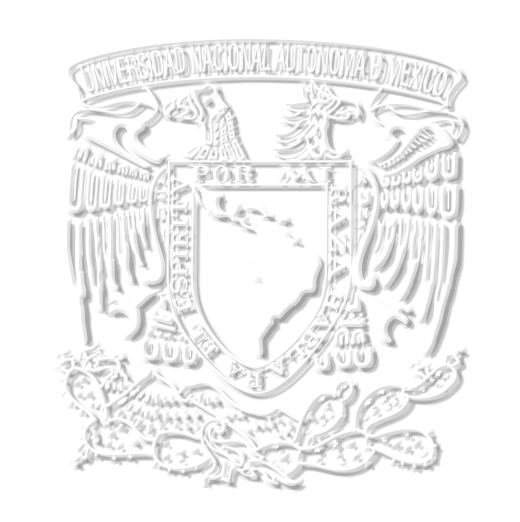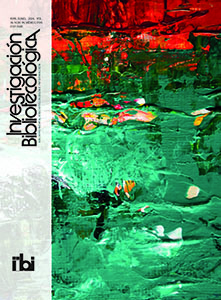Abstract
The objective is to identify the necessary training requirements for students to effectively use the resources and services offered by university digital libraries. The study aims to provide an understanding of the practices and the informational competence level of students in different areas of knowledge. An ad hoc instrument to collect data from a sample of 746 university students from six Hispanic countries was used to conduct this exploratory study. Descriptive and inferential statistical analyses were performed on the collected data. The results reveal limited use of university digital libraries by young people in general, dissatisfaction with some of the services they provide, and a low level of informational literacy for effective searching, evaluating, and digital information management. Despite young individuals declare possessing skills for acquiring digital resources, the study evidences the need for teachers and librarians to design strategies that reinforce information literacy across its four dimensions: library resources, plagiarism and source citation, information retrieval, and information evaluation.
References
ACRL (Association of College and Research Libraries). 2000. Information Literacy Competency Standards for Higher Education. Chicago: American Library Association. http://hdl.handle.net/11213/7668
Alexander, Bryan, Samantha Adams Becker, Michele Cummins y Courtney Hall Giesinger. 2017. Digital Literacy in Higher Education, Part II: An NMC Horizon Proyect Strategic Brief. Volume 3.4. Texas: The New Media Consortium. https://files.eric.ed.gov/fulltext/ED593904.pdf
Alonso-Arévalo, Julio, y Marta Vázquez-Vázquez. 2018. “La contribución de la biblioteca universitaria al logro de los planes y proyectos de la institución”. Cuadernos de Documentación Multimedia 29: 42-53. http://dx.doi.org/10.5209/CDMU.60033
Andrews, Camille, Sara Wright y Howard Raskin. 2016. “Library Learning Spaces: Investigating Libraries and Investing in Student Feedback”. Journal of Library Administration 56 (6): 647-72. https://doi.org/10.1080/01930826.2015.1105556
Barlow, Mike. 2015. Learning to Love Data Science: Explorations of Emerging Technologies and Platforms for Predictive Analytics, Machine Learning, Digital Manufacturing and Supply Chain Optimization. Sebastopol, California: O’Reilly Media.
Calva González, Juan José. 2023. “Estudio sobre las necesidades y comportamiento informativo de una comunidad indígena”. Investigación Bibliotecológica: archivonomía, bibliotecología e información 37 (94): 161-88. https://doi.org/10.22201/iibi.24488321xe.2023.94.58589
Campbell, Debbie. 2011. Student Learning in Library Research Instruction for University Seminar and Critical Writing, Reading, and Research I & II. Assessment Report for Academic Year 2010-2011. https://millikin.edu/sites/default/files/2023-04/InstructionReport2010-11.pdf
Harrop, Helen, David Kay, Owen Stephens, Seb Schmoller y James Kay. 2015. ‘We Love the Library, but We Live on the Web’: Findings Around How Academic Library Users View Online Resources and Services. https://im2punt0.files.wordpress.com/2015/08/uk-survey-report-july-2015.pdf
Julien, Heidi, Melissa Gross y Don Latham. 2018. “Survey of Information Literacy Instructional Practices in U.S. Academic Libraries”. College & Research Libraries 79 (2): 179-99. https://doi.org/10.5860/crl.79.2.179
Kortemeyer, Gerd, y Stefan Dröschler. 2021. “A User-Transaction-Based Recommendation Strategy for an Educational Digital Library”. International Journal on Digital Libraries 22: 147-57. https://doi.org/10.1007/s00799-021-00298-8
Law, Derek. 2017. “Capacity and Capability: How Can Library and Information Services Make Sure They Succeed?”. En Innovation in Libraries and Information Services Volume 35, editado por David Baker and Wendy Evans, 87-101. Bradford: Emerald Group Publishing. https://doi.org/10.1108/S0732-067120160000035012
Lysiak, Lori, Emily Mross y Victoria Raish. 2018. “Across the Campuses and around the Globe: Reaching Online Learners through High-Level Embedded Librarianship”. Journal of Library & Information Services in Distance Learning 12 (1/2): 13-34. https://doi.org/10.1080/1533290X.2018.1502717
Malanga, Donald Flywell, Boemo Jorosi y Wallace Chigona. 2022. “Digital Information Literacy among the Faculty of Applied Science Students at a Private University in Malawi”. En Technological Advancements in Library Service Innovation, editado por Manika Lamba, 130-152. Hershey, Pensilvania: IGI Global. https://doi.org/10.4018/978-1-7998-8942-7.ch008
Nikou, Shahrokh, y Milla Aavakare. 2021. “An Assessment of the Interplay between Literacy and Digital Technology in Higher Education”. Education and Information Technologies 26: 3893-3915. https://doi.org/10.1007/s10639-021-10451-0
Okoye, Chidi Nuel-Jean, y Michael Onuchukwu Okoye. 2020. “Relevance of Libraries and Librarians in Distance Education Programs of Universities in Nigeria”. Journal of Library & Information Services in Distance Learning 14 (2): 141-159. https://doi.org/10.1080/1533290X.2020.1806175
Omeluzor, Saturday, y Titilola Kikelomo Aluko-Arowolo. 2023. “Use of Library Resources and Services by Postgraduate Students in a Specialized University in Nigeria”. Library Philosophy and Practice: 7937. https://digitalcommons.unl.edu/libphilprac/7937
Saunders, Laura. 2015. “Academic Libraries’ Strategic Plans: Top Trends and Under-Recognized Areas”. The Journal of Academic Librarianship 41 (3): 285-91. https://doi.org/10.1016/j.acalib.2015.03.011
Soltani, Sanaz, y Shanhrokh Nikou. 2020. “An Assessment of Academic Library Services: International and Domestic Students Perspectives”. Library Management 41 (8/9): 631-53. https://doi.org/10.1108/LM-04-2020-0071
SPSS Inc. 1969. SPSS (Statistical Package for the Social Sciences). V. 25. IBM Corporation. Disponible para Windows, macOS y Linux. https://www.ibm.com/products/spss-statistics
Torres-Gómez, Albano. 2023. “El fenómeno de las necesidades de información en el contexto de la Web 2.0 en estudiantes de administración en el municipio de Atlixco, Puebla”. Investigación Bibliotecológica: archivonomía, bibliotecología e información 37 (94): 13-31. http://dx.doi.org/10.22201/iibi.24488321xe.2023.94.58681
Winata, Arda Putri, Raisa Fadelina y Sulistyo Basuki. 2021. “New Normal and Library Services in Indonesia: A Case Study of University Libraries”. Digital Library Perspectives 37 (1): 77-84. https://doi.org/10.1108/DLP-07-2020-0059
Authors:
- They must sent the publication authorization letter to Investigación Bibliotecológica: archivonomía, bibliotecología e información.
- They can share the submission with the scientific community in the following ways:
- As teaching support material
- As the basis for lectures in academic conferences
- Self-archiving in academic repositories.
- Dissemination in academic networks.
- Posting to author’s blogs and personal websites
These allowances shall remain in effect as long as the conditions of use of the contents of the journal are duly observed pursuant to the Creative Commons:Attribution-NonCommercial-NoDerivatives 4.0 license that it holds. DOI links for download the full text of published papers are provided for the last three uses.
Self-archiving policy
For self-archiving, authors must comply with the following
a) Acknowledge the copyright held by the journal Investigación Bibliotecológica: archivonomía, bibliotecología e información.
b) Establish a link to the original version of the paper on the journal page, using, for example, the DOI.
c) Disseminate the final version published in the journal.
Licensing of contents
The journal Investigación Bibliotecológica: archivonomía, bibliotecología e información allows access and use of its contents pursuant to the Creative Commons license: Attribution- Non-commercial-NoDerivatives 4.0.

Investigación Bibliotecológica: archivonomía, bibliotecología e información by Universidad Nacional Autónoma de México is licensed under a Creative Commons Attribution-NonCommercial-NoDerivatives 4.0 Internacional License.
Creado a partir de la obra en http://rev-ib.unam.mx/ib.
This means that contents can only be read and shared as long as the authorship of the work is acknowledged and cited. The work shall not be exploited for commercial ends nor shall it been modified.
Limitation of liability
The journal is not liable for academic fraud or plagiarism committed by authors, nor for the intellectual criteria they employ. Similarly, the journal shall not be liable for the services offered through third party hyperlinks contained in papers submitted by authors.
In support of this position, the journal provides the Author’s Duties notice at the following link: Responsibilities of authors.
The director or editor of the journal shall notify authors in the event it migrates the contents of the journal’s official website to a distinct IP or domain.




